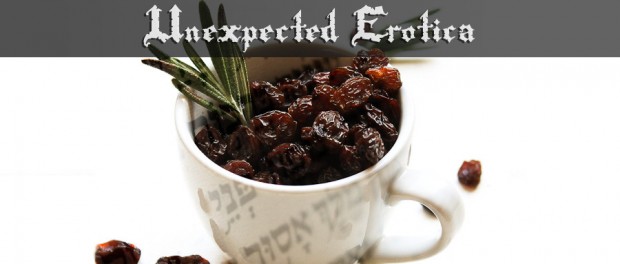Raisins and Flagons – Song of Songs 2:5

Song of Songs 2:5a
- KJV: Stay me with flagons…
- NIV: Strengthen me with raisins…
- NASB: Strengthen me with raisin cakes…
Given the raisin-oriented interpretation across translations, it’s likely no surprise that “flagons” is the odd man out. Other verses in the Bible with this word are similarly off.
Hosea 3:1 refers to those who “turn to other gods and love raisin cakes” in the NASB, and the NIV only differs by prepending it with “the sacred”. Meanwhile, the KJV calls them those “who look to other gods, and love flagons of wine.” More with the flagons. What gives?
2 Samuel 6:19 records David giving out a “cake of raisins” (NIV) to citizens among other things. The NASB says, in essence, the same thing. The KJV remains focused, translating it as “flagons of wine“.
These raisin cakes were made in two shapes — a nude female with oversized sexual features or a triangle representing the vulva.
Isaiah 16:7 refers to wanting “the raisin cakes of Kir Hareseth” in the NIV, and NASB, but the KJV avoids the word altogether. “For the foundations of Kir-Hareseth shall ye mourn” it says. So it’s like they don’t even buy into the flagons concept consistently.
One thing is certain; these items are food tied to religious festivals. David’s gifts accompanied a great party, which triggered a fight with his wife about indecency, and the Hosea and Isaiah references tie these treats to cultic celebrations.
Meanwhile, Jeremiah 7:18 describes people making cakes to portray the well-known fertility goddess Ishtar, also called the Queen of Heaven. The extensive sexual rituals this cult centered around apparently included — get this — raisin cakes made in a couple shapes.
One was Ishtar herself, a nude female with oversized sexual features. The other was a triangle representing the vulva.
Not very subtle, I admit, but these simple pastries were unsurprisingly popular and well-known throughout the region, even in other cultures like the Hebrews. You didn’t have to worship Ishtar to know, recognize, and enjoy the triangular treats and even appreciate a secularized version of the sexual message they portrayed.
As a result, it’s highly possible that these seemingly innocent raisin cakes were actually rich in erotic symbolism.
o
Originally posted 2016-01-11 08:00:02.


Leave a Reply